After 16-year break, rock’s dark lords return with a five-star effort
The British band’s 14th album finds The Cure in high romantic gear, with Robert Smith’s distinctive sob of a voice again proving itself one of the finest instruments in modern music.
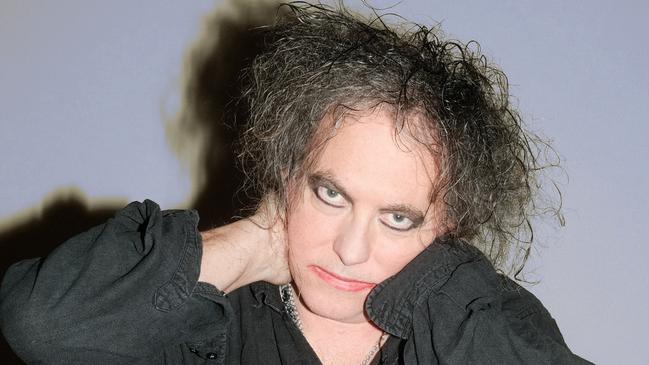
Album reviews for week of November 15 2024:
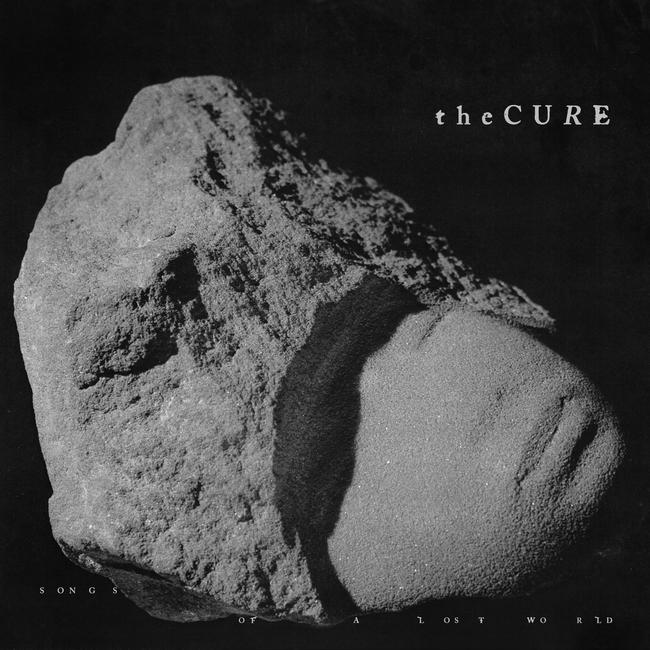
ROCK
Songs of a Lost World
The Cure
Universal Music
Giants once walked the earth. And we walked with them. Each generation must feel this, their appreciation intensified by the passing of heroes and heroines and, with luck, a few autumnal triumphs before they’re gone. I belong to what Richard Hell once called The Blank Generation. A pressure point in 1977 when punk rock’s Year Zero nihilism wiped the slate, making way for the manic artistry of the post-punk era. Nick Cave, Paul Weller and Robert Smith were a few of the great poets in that zeitgeist shift. Almost a half-century on, I am not sure we will see their likes again. I’ve been a lifelong fan of The Cure ever since I heard Boys Don’t Cry in 1979. On Songs of a Lost World, the British band’s first album release in 16 years, Smith cries plenty, in tune with lines from the poet John Keats inscribed on the album sleeve: “When I have fears that I may cease to be.” Smith has paralleled these words to “a breath before you start listening”. Songs of a Lost World is The Cure in high romantic gear, with his sob of a voice again proving itself one of the finest instruments in modern music. If you find Smith’s singing too sulky, too boyishly wounded and dreamy, you’re never going to understand the love now. Across Lost World he is at a vocal peak, more committed than he has sounded in a long time.
Background to the album includes the death of Smith’s brother a decade ago, followed by that of his parents – events magnified by Covid lockdowns and what sounds like a relationship in trouble, yet far from over and even deepened. Other inspirations include a sculpture by the Slovenian artist Janez Pirnat, a face caught in stone that Smith used for the album’s artwork. The 65-year-old singer has also referenced the British poet Ernest Dowson’s depressive work Dregs, where memory is akin to an old man before the ashes of a fire. Songs of a Lost World is not for children: it’s for those facing mortality. Sonically it is The Cure plus – the same as ever, but so much better, icy keyboard spills and washes, tangles of molten guitar flowing between Smith and former Bowie sideman Reeves Gabrels amid Jason Cooper and Simon Gallup’s cathedral of drums and bass. Remarkably coherent, the personal intensity is concisely reflected in eight songs credited to Smith alone, selected from three albums worth of new material. Cold and grand and refreshing, Lost World deals with what is almost over, while glorying in what is still here: the burdens of sorrow, love fighting to endure. A great album about being human, Smith is with us in raging against the dying of the light.
Mark Mordue
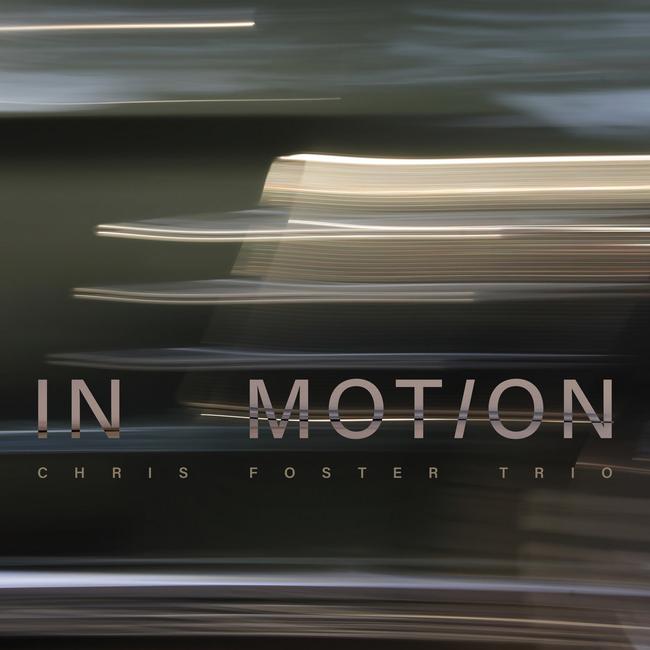
JAZZ
In Motion
Chris Foster Trio
Independent
In Motion has three excellent, well-educated Perth musicians in a convincing, even scintillating, exploration of the jazz/rock genre. Chris Foster (piano), Nick Abbey (bass) and Daniel Susnjar (drums) completely understand the rhythmic possibilities here and often capture the majesty inherent in the genre. Foster’s seven original compositions are interesting, well-written and sensitively treated; moreover the vinyl version filled my apartment with glorious sound. Having said that, what may limit the album’s appeal is its sound balance. Abbey’s bass playing, which is admittedly very impressive, is for my taste too loud throughout, which is an irritant. It’s as if whoever mixed the album has never heard Stanley Clarke with Chick Corea’s Return To Forever, nor Miroslav Vitous with Weather Report. Listeners who like various forms of rock music might warm to this bullish bass sound, and Foster’s own improvisations – beautiful, concise and technically proficient – can mercifully be clearly heard. But on this sort of album I believe many jazz enthusiasts would prefer a more hip double bass sound.
Eric Myers
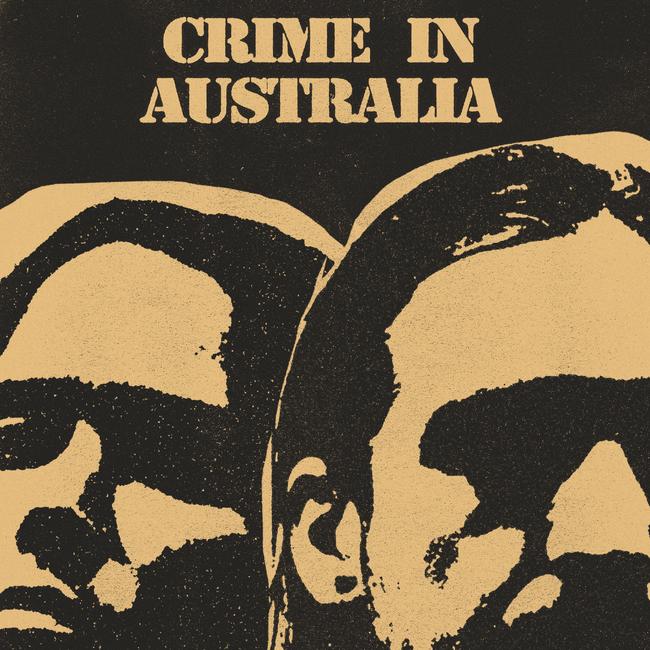
NOISE/EXPERIMENTAL
Crime in Australia
Party Dozen
Grupo
Saxophone and drums are the primary instruments in Party Dozen, but that’s only the start of the Sydney duo’s unusual approach. Kirsty Tickle and Jonathan Boulet flesh out their songs with contorting samples, while Tickle yells directly into the bell of her sax. The results swing between artful obscurement and brash abandon. This fourth album is divided into halves themed loosely around order and disorder, with the first five songs among the band’s most accessible to date. Coup De Gronk opens proceedings with a serious horn hook, only to be topped by the concussive four-piano sample anchoring lead single Wake in Might. That comparatively structured squall sets the table for the frayed psych tangents of Money & The Drugs, the more melodic openness of Les Crimes and the groggy dream-pop diversion of The Big Man Upstairs. The second half isn’t so different, despite Judge Hammer’s syrupy repetition and Piss on Earth’s slow-moving harshness. None of this should work, yet it really does. Think of it as contrarian party music, all roughed up and caved in.
Doug Wallen
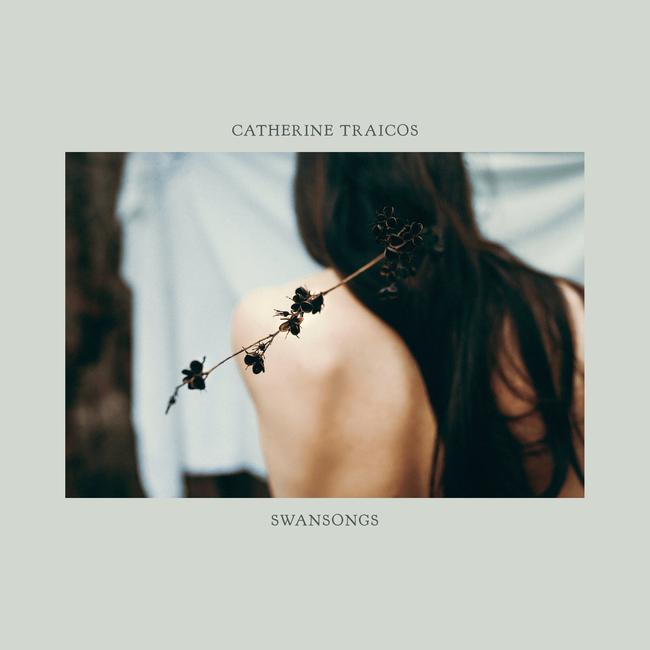
FOLK
Swansongs
Catherine Traicos
Independent
Written over the course of a fortnight in a haunted apartment in Sydney earlier this year, West Australian Catherine Traicos’s 10th studio record is a slow-burning collection that builds to a gentle crescendo over the course of its nine songs, artfully pieced together by acclaimed producer Anna Laverty (Nick Cave and the Bad Seeds, Florence and the Machine). Very much based around Traicos’s intricate piano, accompanied sparsely throughout by seams of flugelhorn, bass clarinet, cello and synthesised beats, Swansongs focuses on the rise and decline of relationships — the results being a clutch of songs that are, as one would expect, dark, but without the melancholy that would usually permeate such subject matter. Opening track A Heartbeat Away bleeds into And You Want to Run to Me forming a solid base, and by the time you get to the tail end via songs like By Your Eyes, with its playful vocalising; Home, backed by a synthesised beat; and Holy Hell, laced with the most spirited piano tone on the album, you feel you’ve been there with Traicos through all her ups and downs, which presents as testament to the strength of the songwriting exhibited here.
Samuel J. Fell
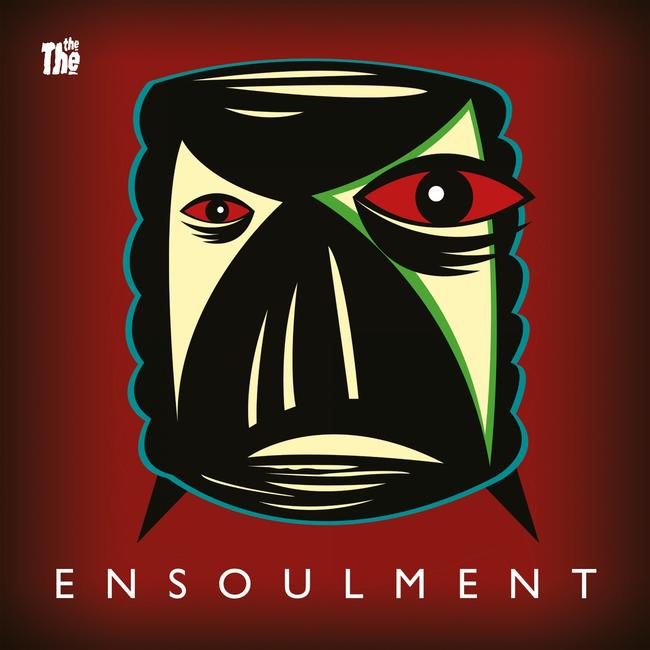
ROCK
Ensoulment
The The
Ear Music
It was more than wacky nomenclature that distinguished British band The The from its more image-conscious post-punk contemporaries. But its 1986 breakthrough album, Infected, reinvented The The as a solo act, namely singer-songwriter Matt Johnson. Never known for his subtlety, Johnson used the AIDS crisis of the time as a central metaphor for Infected, a coruscating set that conflated the disease with the sorry state of politics, both international and personal. Almost 40 years on, little has changed, except Johnson has reformed the band for seventh album Ensoulment. His righteous anger and literate wordplay are intact, evident from opening track Cognitive Dissident: “Servile, surveilled / dumbed-down, curtailed / screen-grabbed, de-ranked / untagged, de-banked”. Amid musings on the duplicity of hook-up apps (Zen and the Art of Dating), self-denial (Risin’ Above the Need) and mortality (Where Do We Go When We Die), there’s also romance and dark whimsy. There’s also a requiem for London, a home town Johnson claims to no longer recognise. It’s the template for Ensoulment’s spoken-word, sometimes quasi-rap verses and sung choruses, with Johnson and co taking it on a world tour that hits Australia this month.
Phil Stafford
Album reviews for week of November 8 2024:
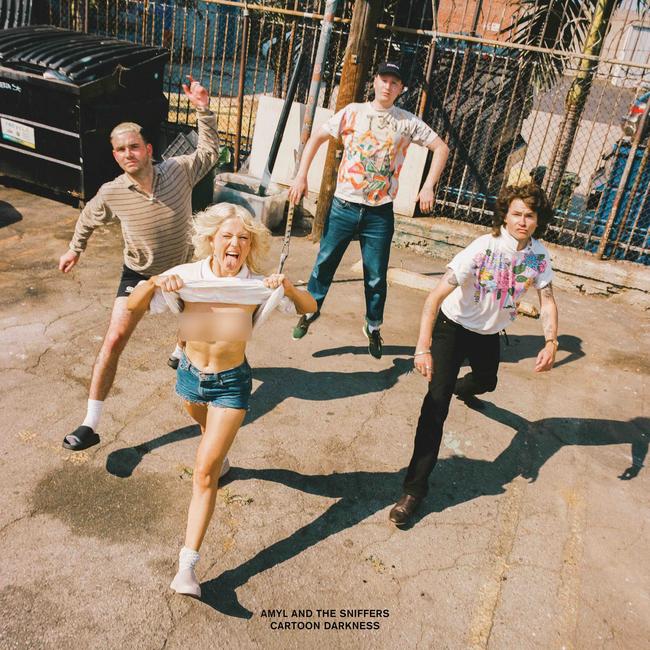
PUNK ROCK
Cartoon Darkness
Amyl and the Sniffers
Virgin Music Group
Few Australian bands feel as simultaneously humble and almighty as Amyl and the Sniffers, the Melbourne pub-punk quartet who are just as likely to tear it up on stage in a small town as tour American stadiums with Foo Fighters. Straddling those two worlds informs the band’s third album, which packs as many stream-ready anthems as it does sidelong tracks that feel sweetly low-stakes by comparison. Fronted with perpetual panache by vocalist Amy Taylor, the Sniffers recorded these 13 songs with longtime Bad Seeds producer Nick Launay at Foo Fighters’ 606 Studios in Los Angeles. There’s nothing slick about it, despite the band’s obvious drive and rise from cult heroes to near-household-name status. But that’s not to say there aren’t new flourishes here, such as the coolly subtle production touches on breakout single U Should Not Be Doing That. Inspired by the unsolicited advice Taylor faces on a regular basis, it’s a song about remembering your worth in the face of strangers who think they know better. Equally repeatable is Chewing Gum, a more melodic turn that still sounds like it could have been recorded in a single group take. “Life is short, life is fun / I am young and in love,” sings Taylor, cutting through the complications of modern living with her usual directness.
Her brash charisma and natural comic flair are the perfect topper for the rough-and-ready steadfastness displayed throughout the album by guitarist Declan Mehrtens, bassist Gus Romer and drummer Bryce Wilson, who evoke both 1970s Rolling Stones and 1980s metal, yet just as casually embrace the heated mechanics of hardcore punk on It’s Mine. Other standouts include Tiny Bikini, which leans into Taylor’s powerful stage presence, and the double hit of muscle and emotion that is Motorbike Song and Doing in Me Head. Ballads aren’t the Sniffers’ strong suit, but it’s nice to hear them slow down on Big Dreams and Mehrtens-penned Bailing on Me. Less successful is Me and the Girls, a vocoder-kicked celebration of getting drunk at the airport that packs in some fun insults but caps off the album too abruptly. It’s easy to wish for a whole stack of songs like U Should Not Be Doing That, but that would get old fast. Better, then, to see this stubbornly unique band push beyond their comfort zone right when the spotlight on them has never been brighter.
Doug Wallen
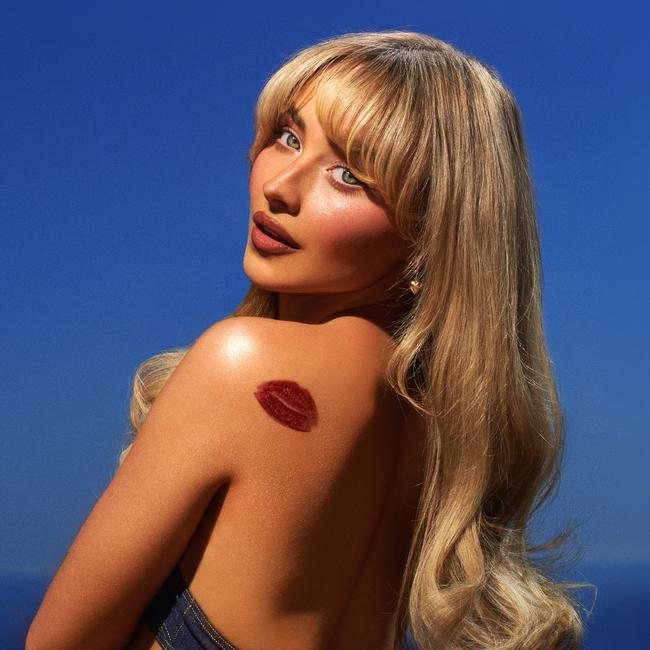
POP
Short n’ Sweet
Sabrina Carpenter
Island Records
For the sixth time this calendar year, Jack Antonoff and Friends at Island Records have unveiled a solid pop record, albeit with the bubblegum dialled up, but not to the point that a sugar crash is imminent. Cuts like Please, Please, Please, Good Graces and Sharpest Tool are slickly produced and easy on the ear, offering the perfect chill pill to offset the excess of other major pop releases this year. The singer this time around is Sabrina Carpenter, who readers may know as the star of Disney’s Girl Meets World or as an opening act on Taylor Swift’s recently completed Eras tour. All this is firmly tongue in cheek, of course — incidentally a saying employed as a sloppy euphemism on this record — but the problem is this: it’s hard to work out what distinguishes Carpenter on this release from her LA/TikTok peers, other than its chart-topping, mega-hit status. The main highlights of the record come on the Prince-like Bed Chem and closing slow-burner, Don’t Smile, but their 80s pop sensibilities sound a long way from Carpenter’s prior sound. Overall, Short N’ Sweet is a good record by… someone.
Alasdair Belling
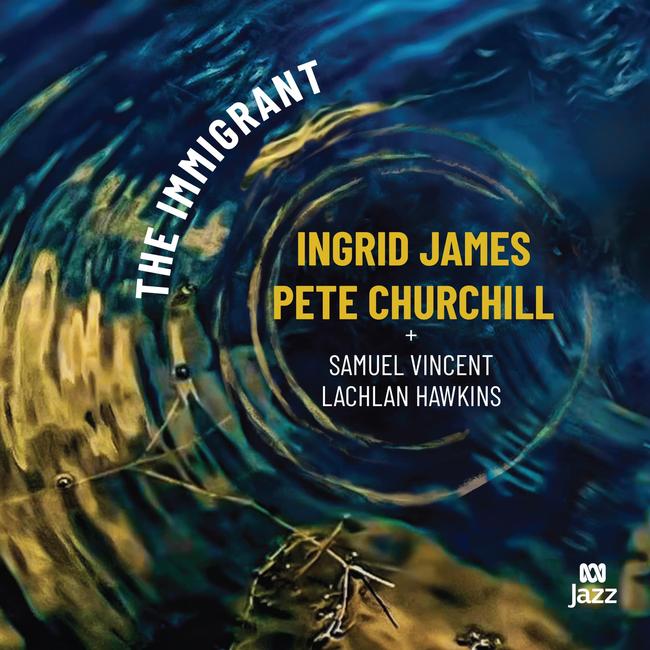
JAZZ
Search For Peace
Ingrid James
ABC Jazz
One can luxuriate in this album, featuring the beautiful sound quality in Ingrid James’s unique voice. Eleven carefully chosen compositions are presented, including her original, The Immigrant, relating the story of her mother’s departure from Lapland, Finland, and migration to Australia. The other 10, by a collection of stellar composers, have thoughtful, mature lyrics which are highly moving. She is backed by two excellent Australians in Samuel Vincent (acoustic bass) and Lachlan Hawkins (drums), plus the UK’s Pete Churchill, who’s done the arrangements, and provides crisp, understated piano solos. James’s unhurried articulation of the lyrics throughout is distinctive, rendering them splendidly meaningful. Standards such as You Must Believe in Spring and Alone Together are not known as easy to sing, but in the hands of this great singer they are well consummated. Also, from time to time, James provides judicious examples of wordless vocals, nailing with ease what is arguably the most difficult task in jazz singing. This is an album of which Brisbane singer Ingrid James can be justly proud.
Eric Myers
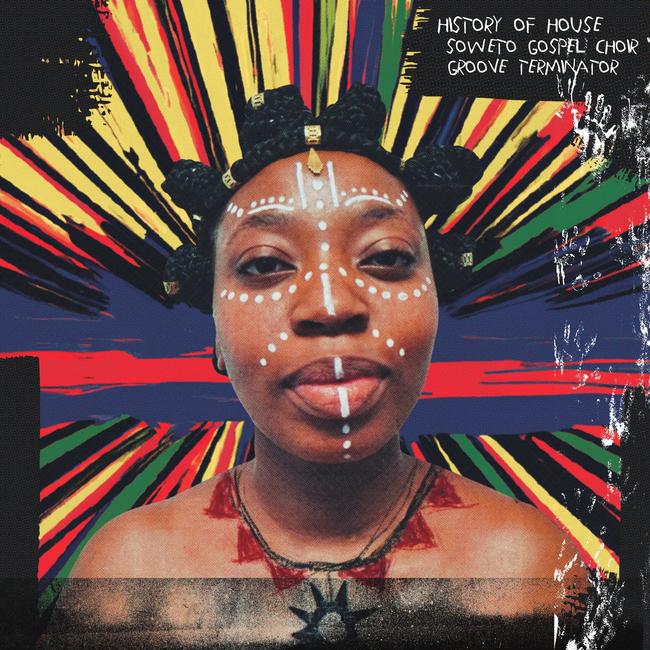
ELECTRONIC
History of House
Soweto Gospel Choir/Groove Terminator
Music Is Fun
Grammy-winning Soweto Gospel Choir has been celebrating the power of African gospel music since 2002. Sydney-based DJ-producer Groove Terminator (or GT), meanwhile, has been an electronic scene stalwart for even longer. Throw in LA-based producer Latroit, and the concept of an album spotlighting Africa’s dance music roots immediately piques interest. Envisaged in 2019 as a live covers show featuring the choir and showcasing the evolution of house music, the pandemic saw the project evolve into a recorded format that sought to honour house music’s black history. This album is an expansive, energetic reimagination of some seminal tunes that nod variously to Afro-house and kwaito subgenre Amapiano. Recorded in both Zulu and English, interpretations of hits like World Hold On, Delerium’s Silence and a sublime version of Inner City’s Good Life are a joy to sink into. Combining the soaring choir, vocals from Africa’s brightest emerging artists, and GT and Latroit’s crisp arrangement and production, tunes like Christopher Cross’s Ride Like the Wind, Ultra Nate’s Free and Robert Miles’ Children hit different, retaining their integrity while presenting new sonic pathways. Bridging both cultures and histories, this is joyous fare, and highly recommended.
Tim McNamara

AMERICANA
Woodland
Gillian Welch & David Rawlings
Acony Records
Gillian Welch’s first album of original material for a dozen years and her partner-in-rhyme David Rawlings’ first since 2017, will no doubt sate the appetites of faithful followers who rejoice in the couple’s old-time Appalachian and bluegrass-styled alt-country ballads. However, Woodland might not be everybody’s cup of hooch. The American duo’s follow-up to 2021’s Grammy Award-winning covers release, All The Good Times (Are Past & Gone), is a tad dry and world-weary overall, with recurring themes of emptiness and grief featured in the intimate duets that are their stock-in-trade, and disappointingly lacking variation in tempo. Although Welch’s singing is as excellent as ever and their close three and four-part harmony choruses similarly exemplary, more lead vocal tracks from David Rawlings — whose animated rendition of Turf the Gambler is among the standout tracks — would have helped balance the set. Rawlings’ ever-inventive guitar accompaniment is impeccable throughout, as he ably demonstrates both finger-picked and slide stylings. Much welcomed and more expansive band arrangements in comparatively punchy tail-end tracks feature well-placed fiddle, harmonica, organ and banjo fills.
Tony Hillier
Album reviews for week of November 1 2024:
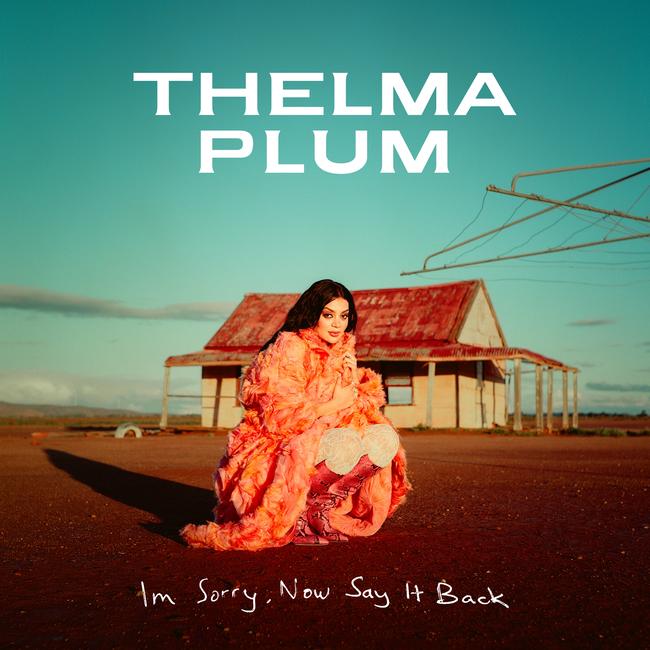
POP/FOLK
I’m Sorry, Now Say It Back
Thelma Plum
Warner Music Australia
It’s been five years since Thelma Plum’s debut album Better in Blak, which yielded seven ARIA nominations and three multi-platinum singles, including the unforgettable title track. That stretch of time has given the Gamilaraay singer-songwriter plenty of opportunity to look inward, so it’s no surprise that self-reflection is a major theme throughout her follow-up. Co-written with G Flip and Aidan Hogg, the early track Hurricane even mentions looking into the mirror as Plum thinks back upon where she was two and three decades ago. Like many of these songs, it’s a pop ballad about choosing the direction in life that’s right for you (and you alone). But first comes a reckoning with the past: Guwop details being hung up on your ex even after they’ve started dating someone else, while I Don’t Play That Song Anymore sees Plum lament with characteristic directness, “When I was younger, I wish I knew better.” Set to an appropriately galloping rhythm, Cowboy in the Rain touches on both the power and limitations of personal transformation: “I shaved my head and it grew back / I changed my clothes but they’re still black”.
Against a baggy beat and references to walking along Brisbane River, We Don’t Talk About It is a cautionary tale about women not heeding other women’s warnings about certain men. Yet it’s delivered in a radio-friendly package, just as other tracks spin fairly sombre subject matter into snappy pop. Nobody’s Baby contrasts its dark lyrics with mid-tempo disco flourishes, while the waltz-like flow of Koala belies Plum apologising for being broken. Working with multi-instrumentalist/producer Alex Burnett – a repeat collaborator of hers – and Oli Horton, Plum doesn’t try to replicate a singular rallying cry on the level of 2019’s Better in Blak. But such a career signature is unlikely to repeat itself so soon, and this is a quietly assured successor, from her vocal performances to the varied arrangements. Despite no entry crossing the four-minute mark, these songs impart a lasting message of empowerment, even if that simply means not settling for less than you deserve. “I wanted more / It’s not enough,” Plum admits on the emotional centrepiece Golden Touch. Amongst all those encouraging tales of learning and growth, the single Freckles voices a rousing celebration of unconditional love. Plum just knows that we might have to go through an awful lot before we get there.
Doug Wallen
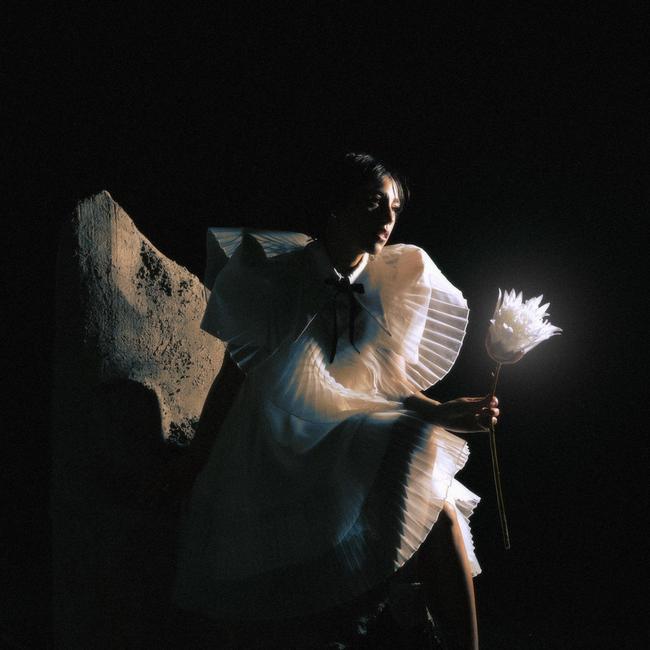
INDIE POP
Time is a Flower
Telenova
EMI
Melbourne’s Telenova is composed of three capable, talented indie-pop musicians. They seem to know their way around songwriting and production too, having handled both for debut album Time is a Flower. So why, exactly, is it so difficult for Telenova’s music to click? One key culprit could be the band’s politeness. No-one’s expecting them to start throwing TVs out of hotel windows anytime soon, but the music predominantly presents edgeless, bubble-wrapped and inconsequential compositions that dare not raise their voice for fear of a neighbour’s noise complaints. There’s a pleasant sway to groove along to when it comes to more upbeat tracks like the peppy Margot and the lush January, indicating at least a modicum of potential. Away from that, however, the band ultimately starts to blend in with the wallpaper via its saccharine synth-strings and Angeline Armstrong’s increasingly woozy vocal delivery. The trio describes its sound as “cinema for your ears”, but on Time is a Flower, it feels more like falling asleep in front of the television.
David James Young
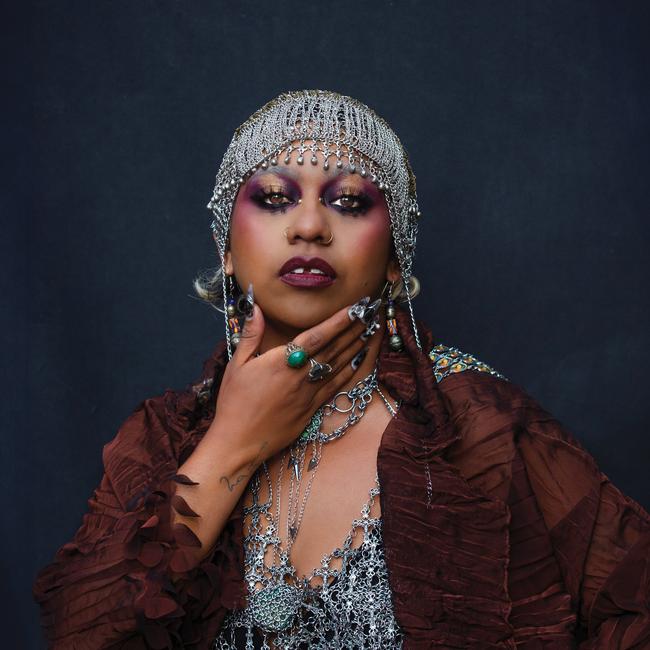
FOLK/POP
Nara
Emily Wurramara
ABC Music
Since the release of her acclaimed 2018 debut Milyakburra, Emily Wurramara has run the gamut of human experience, from immense highs to crushing lows, the results of which are laid bare across her new record, Nara. Now based in Tasmania, her second album offers a deeply personal journey through a markedly eclectic musical landscape. From the slow-banging rock ‘n’ roll of Midnight Blues, we’re presented with a new sonic direction, a departure from pure folk, for Wurramara who reflects, “It was when I had nothing, that I realised I had everything” — a sentiment which colours the entirety of Nara (the Anindilyakwa word for “nothing”). The electronica of DTMN and STFAFM (featuring younger brother Arringarri) meld seamlessly with the folkier Friend and See Me There (featuring childhood hero Lisa Mitchell), showcasing Wurramara’s wont to dig deeper and experiment musically. Wrapping neatly with the beautifully ethereal Passport, Nara offers a gorgeous melange of sound and style. Above all it’s a sonic gamble for Wurramara, but one which easily pays off.
Samuel J. Fell
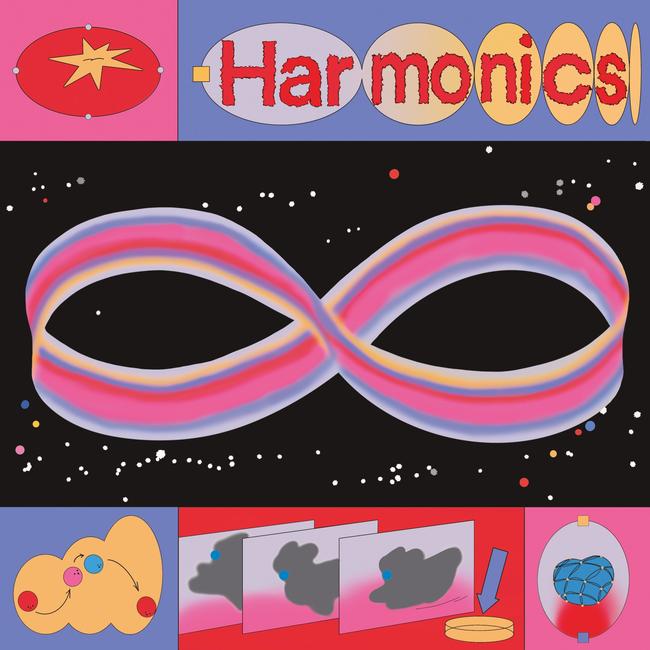
ELECTRONIC
Harmonics
Joe Goddard
Domino Recordings
As co-founder of indie dance darlings Hot Chip, Joe Goddard has, over 20-plus years, become synonymous with musical immersion. As a solo artist, however, the Grammy-nominated producer and remixer has charted a deeper path. On his third solo album and follow up to 2017’s excellent Electric Lines, Goddard has gone all-in on empathy, fashioning 14 tracks of warm, if often restless, pop-tinged electronica, with nods to UK garage, house, disco and hip-hop. Again indulging his love of vintage and analog synths, Goddard largely delivers on his aim of a “loving, romantic, fun” album. Multiple guests — including his Hot Chip bandmates, on slow-burner Mountains — add lyrical depth to his crisp, swirling productions. Opener Moments Die strikes an early high note via Goddard’s back-and-forth vocal with Brooklyn singer Barrie, while New World (Flow) combines a contemplative melody with Fiorious’s defiant vocal. Progress is an afro-house groove elevated by horns; in contrast, Oranje’s upfront rap on When Love’s Out of Fashion hits harder via stuttering beats and warbling, ominous synths, while the dirty bassline-led groove of Summon is a chugging, mid-album standout.
Tim McNamara

ALTERNATIVE POP
Zorb
Sycco
Future Classic
Brisbane-born singer-songwriter Sycco (aka Sash McLeod) was viewed as one of the wilder signings for tastemaker electronic label Future Classic only a few years back — but on a refreshingly bonkers, synth-heavy debut record, she more than proves her bona fides. A literal confectionary store of sounds, Zorb encapsulates the manic TikTok-ification of pop music, putting her more in line with labelmate and one-time collaborator Flume in her quest for new textures and arrangements. McLeod’s clear and winsome vocals allow her to traverse an album stuffed full of collaborators that twist and bend her in every direction, belting it like Remi Wolf on the Chrome Sparks-penned Swarm or indulging her penchant for psych-rock on Bad World. It helps that McLeod has been on the festival circuit for a while, meaning she’s equally comfortable performing dramatic R&B ballads (I’m Here Now) as she is punk-funk freakouts (The End). Despite being deliberately disparate, Zorb is an engaging body of work from a promising young Australian artist that doesn’t feel like it’s been A&R’d to death.
Jonathan Seidler



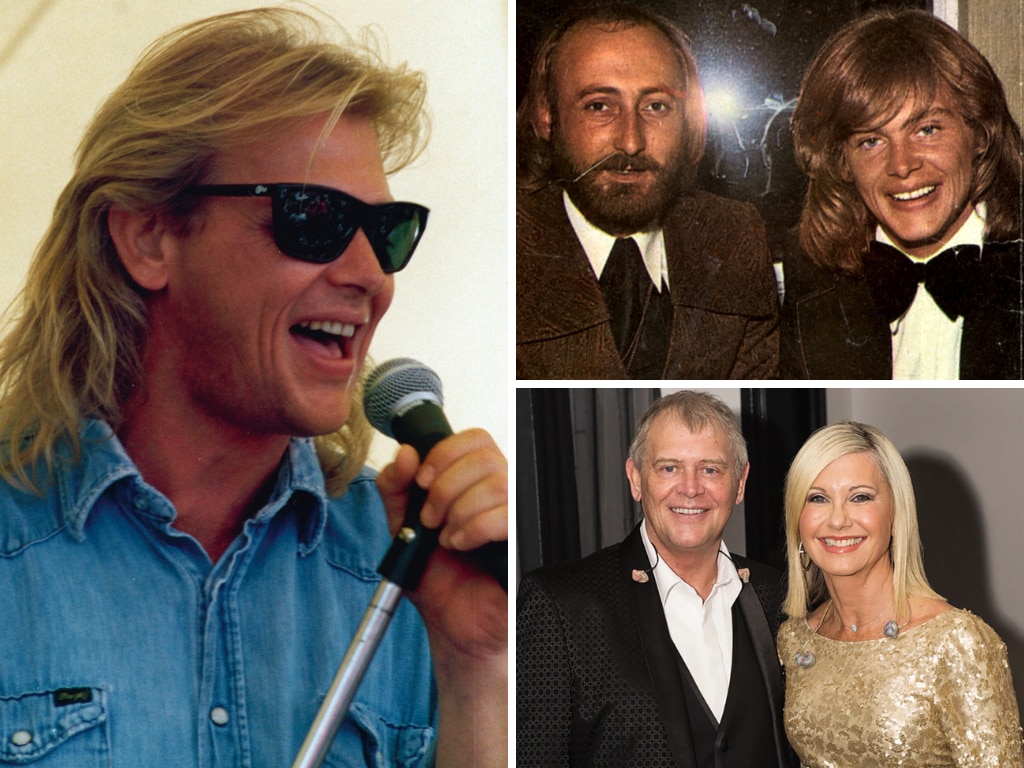
To join the conversation, please log in. Don't have an account? Register
Join the conversation, you are commenting as Logout